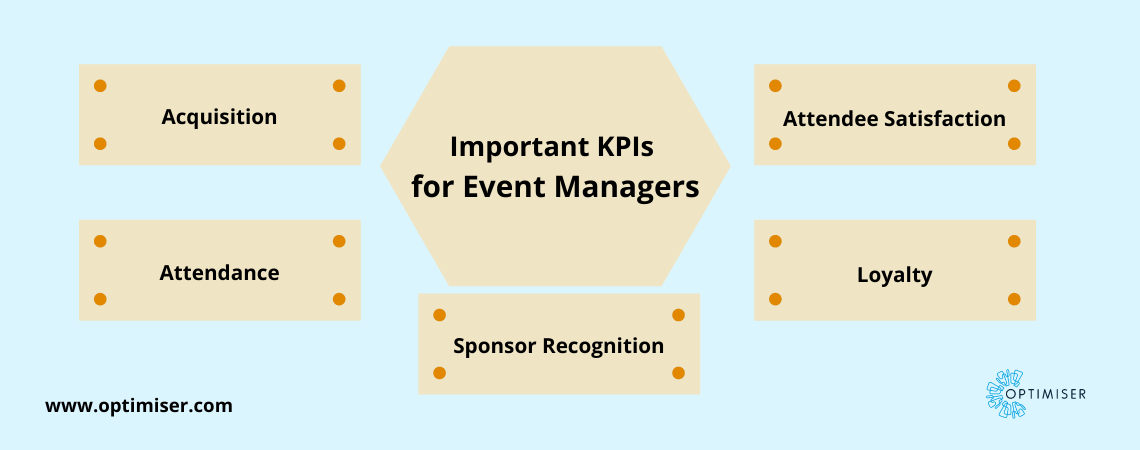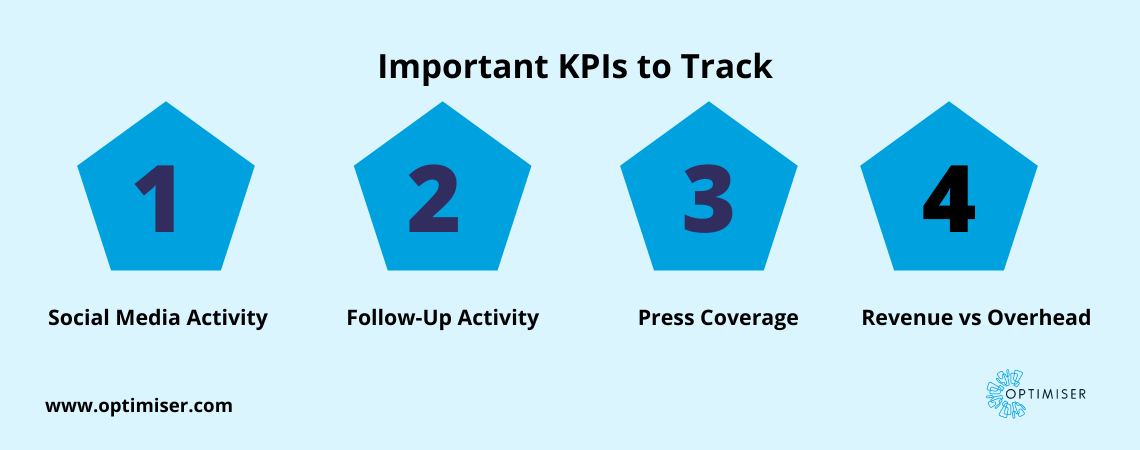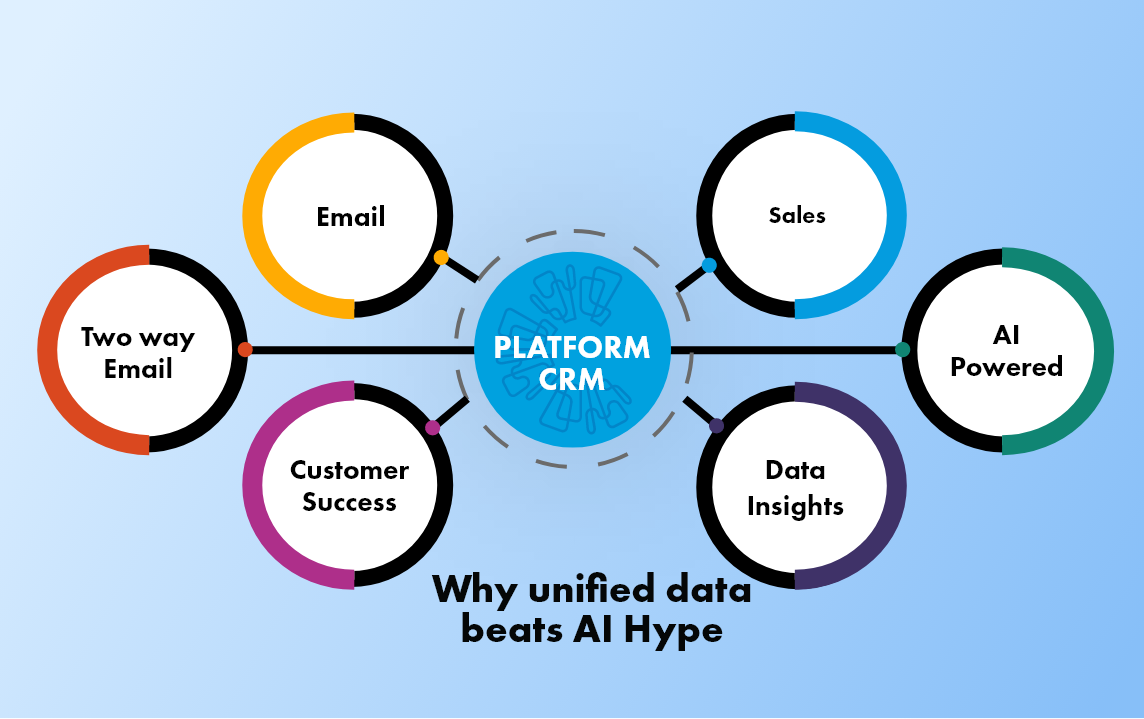.png)
Event Management
9 Important Event Management KPIs for Event Planners
The success of an event depends on attendee engagement, social media activity, acquisition of new customers, attendance, sponsor satisfaction and much more.
Here are the top 9 event management KPIs that should be tracked by every event planner.
1. Acquisition
Acquisition in event management refers to individuals who have registered for the event versus the number of people who actually showed up.
Events, generally, have a considerable rate of event registration. People have interest, but they lose it pretty quick, due to which only a few show up on the day of the event. In events with free admission, this is a common problem.
2. Attendance
Following the acquisition KPI, attendance is essential. While hosting events, it has been observed that the turnout rate is roughly half the number of registered people.
If you have a target number set in mind, you will compare it to the number that showed up on the big day. Did the turnout number meet the set number? If not, what can you do to improve the situation and meet the goals for the following events?
The number can be categorised for easy comparison:
1: How many guests were attending for the first time?
2: How many VIP guests were present?
3: Number of prospective customers versus the non-prospective customers (The former talks about those who are interested and are actively involved in the industry, and the latter discusses those who are tagging along, such as friends and family),

3. Attendee Satisfaction
A good turnout does not imply attendee satisfaction or an indication of a successful event. In fact, it is far from it. A huge turnout could be a negative sign if the event was not satisfying. Disorganised and cluttered events are disliked by guests and are littered with the same complaints. These irritated guests will let people know about their experience on social media. The information will be dispersed amongst a vast audience which can mean a bad thing for your business.
To gauge attendee satisfaction, send out post-event surveys
With Optimiser's event management suite, you can easily collect these, organise them with tags and use the information to make your events as seamless and satisfying as possible.
4. Loyalty
Using loyalty KPI for event management can be significant. Loyalty refers to one or more of the following:
1: Attendance in multiple events
2: Brought guests alongside them
3: Participation in pre-event activities like social media contests
4: User-generated content is provided generously
5: Used event hashtag actively
Local attendees are far more critical than one-time guests. You may have a huge turnout, but only a few of them are likely to return. These loyal attendees are essential for your long-term event success. These people belong to the loyal or high-prospect category.
5. Sponsor Recognition
The event is not about the attendees only. You have sponsors to worry about as well. How the sponsors have interpreted your event is essential as it can give you a glimpse into whether they will be willing to invest in future events or not.
Sponsor impression KPI is overlooked by many event managers. Still, it is one of the most important KPIs in the field. The numbers may be satisfying to you while looking at reports, but does your sponsor feel the same. Do they view the event as a success?
Have they received what they were promised by you from the event? Can you expect to persuade the sponsor into funding another event?
These questions must be asked. Have your sponsors submit post-event feedback that will give you a perspective into what they have taken from the event.

6. Social Media Activity
Aggressive use of social media to promote events and maintain the interest of the registered guests is essential. One has to use social media before, during, and after the event to establish their identity as a social event managing company.
You will have to keep close track of your followers and determine how your posts perform on your social media platforms. A good marketing strategy paired with software such as Optimiser's Marketing Suite will allow you to personalise content, reach a bigger audience, and effectively promote your event from a single platform.
7. Follow-Up Activity
The purpose of an event is to create brand awareness. This leads to more sales, program signups and even referrals. This is what you will have to measure following the events. The activities included in this KPI are:
- Number of new referrals
- Number for signups for programs and events
- Number of purchase
- Increase in social media activity
8. Press Coverage
Press coverage is not pertinent for every company. But those who are interested in generating media coverage will have to track how many media outlets have covered the event. This includes every outlet such as television, radio, online publication and/ or print media.
Has this coverage generated traffic for you? Have they increased the activity on your social media?
You can submit media advisory to outlets close you to or contact reports to attend your event for a free pass to ensure media coverage.
9. Revenue vs Overhead
The overhead cost generated to the total sum of money brought by the ticket sale, product purchase and service signups pertains to Revenue vs overhead KPI. It is advised to spend less than the previous event and retain the same level of quality as the last event.
Summary
The end goal of every event is to create awareness. Brand reputation can be hard to establish. With quality events and quantified KPIs, you can achieve your goals with less overhead costs and acquire high-quality leads.

30 days free trial. No credit card required
 One powerful platform
One powerful platform
 Simple to use
Simple to use
 Comprehensive
Comprehensive



